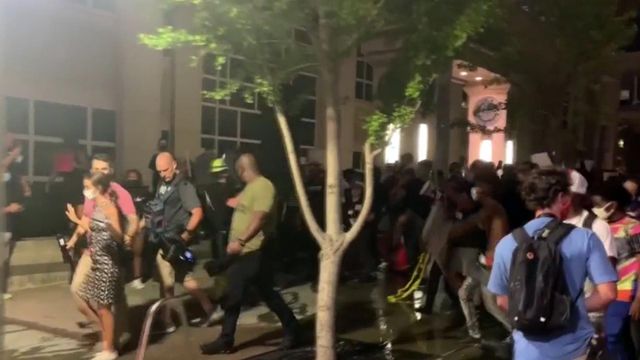Protesters becoming less reliant on news coverage, more antagonistic toward journalists
Many protest organizers used to ask for media coverage, but there now seems to be a growing hostility from people in protests toward journalists - to the point of preventing reporters from doing their job.
Posted — UpdatedWRAL News crews in recent months have had open umbrellas pushed in front of cameras to block out the scene, and in one case, protesters taunting a crew walking away even tried to knock down the camera.
"Y'all don't get the police brutality, and y'all don't put that on the news," one protester said. "Y'all don't show that, but you show Black people messing up stuff."
News crews, in return, have occasionally, had to use camera tripods to keep protesters from interrupting live reports on television.
"Journalists tend to cover protests in very particular ways," Kreiss said. "They emphasize things like conflict over the substantive aims of a movement. They focus – particularly television journalists – on moments of violence or moments of protest."
While the media helps protesters publicize demands to a wider audience, put pressure on public officials and recruit supporters, Kreiss said there’s often a lack of reporting on root causes and limited context on what led to the protest. Also, supporters who wish to remain anonymous can often be identified.
"There might be adverse consequences for some people in their personal lives, in their employer relationships, in their churches,” he said.
WRAL has recently reported in depth on issues like racial disparities in the criminal justice system, and Kreiss said those are the stories that explain the outcome of history and not just a snapshot in time like a protest.
Related Topics
• Credits
Copyright 2024 by Capitol Broadcasting Company. All rights reserved. This material may not be published, broadcast, rewritten or redistributed.






